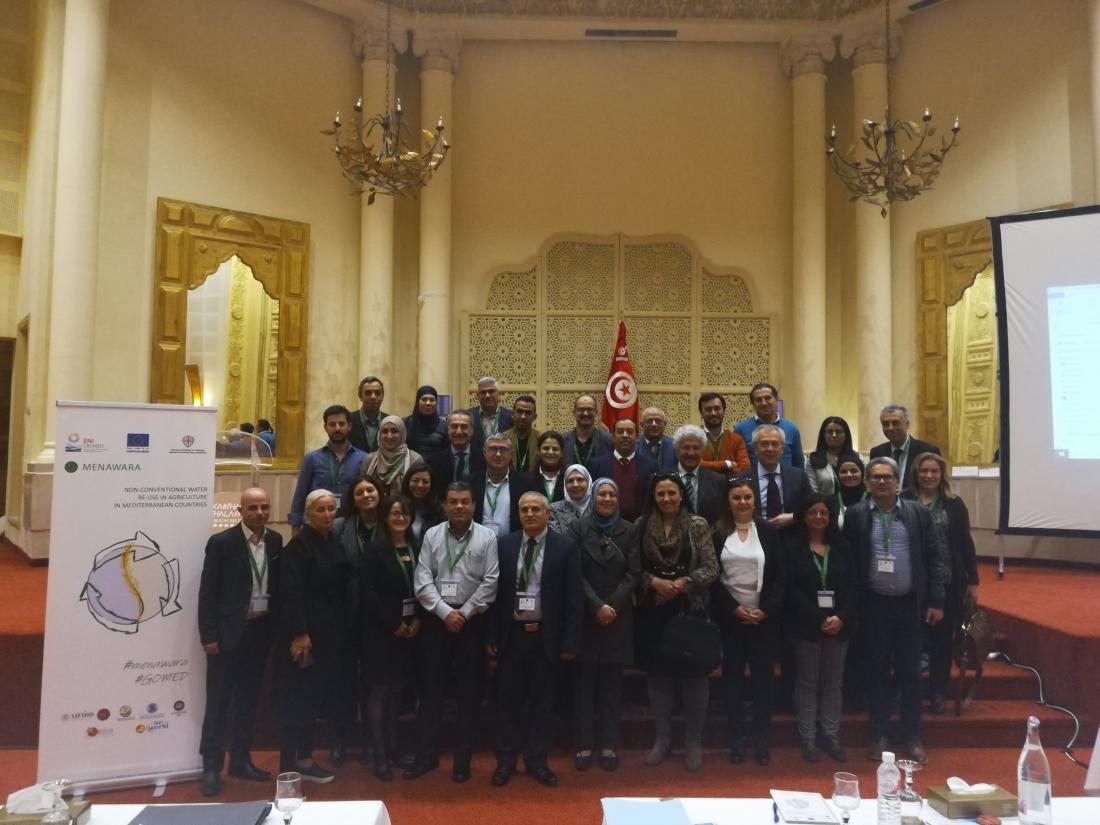Non-conventional water to reduce pressure on water resources: MENAWARA project launched in Tunis

Water shortage is a critical, multi-faceted issue in most of the Mediterranean countries, that is often hard to connect to a single cause.
An integrated approach is often necessary to tackle this issue. That is why researchers and professionals are developing new innovative ways to curb the adverse effects of climate change, population growth and poor water management to reduce pressure on fresh water sources.
By recycling drainage and wastewater, tapping water losses and rationalizing water use practices, the MENAWARA project seeks to develop new, innovative solutions and test their effectiveness and scalability, in both urban and rural areas.
Water is at the core of sustainable development and is critical for socio-economic development, energy and food production, healthy ecosystems and for human survival itself. Water is also at the heart of adaptation to climate change, serving as the crucial link between society and the environment.
MENAWARA ("Non Conventional WAter Re-use in Agriculture in MEditerranean countries") is an € 2.9 million-worth project, 90% of which is co-funded by the ENI CBC Med Programme. It involves partners from both the North and South shore of the Mediterranean Sea as follwopds: the Desertification Research Center (NRD) of the University of Sassari from Italy, WEWORLD-GVC Onlus from Palestine, the National Agricultural Research Center from Jordan, the Office National de l'Assainissement from Tunisia, Fundación Centro de las Nuevas Tecnologías del Agua (CENTA) from Spain, as well as an international organization: the International Center for Advanced Mediterranean Agronomic Studies, based at the Mediterranean Agronomic Institute of Bari.
MENAWARA was officially launched in Tunis on November 28-29, 2019 before a diverse audience, including Mediterranean stakeholders, scholars, national and local institutions, environmental champions and the Tunisian press.
In a 36-month time-span, the project will test and implement:
- an innovative low-cost pre- and post-treatment system installed in 6 wastewater treatment plants in Tunisia, Jordan and Palestine;
- a Living Lab Experimental Center in Spain;
- a Managed Aquifer Recharge system in Italy that uses Forested Infiltration Areas to increase groundwater availability for irrigation.









